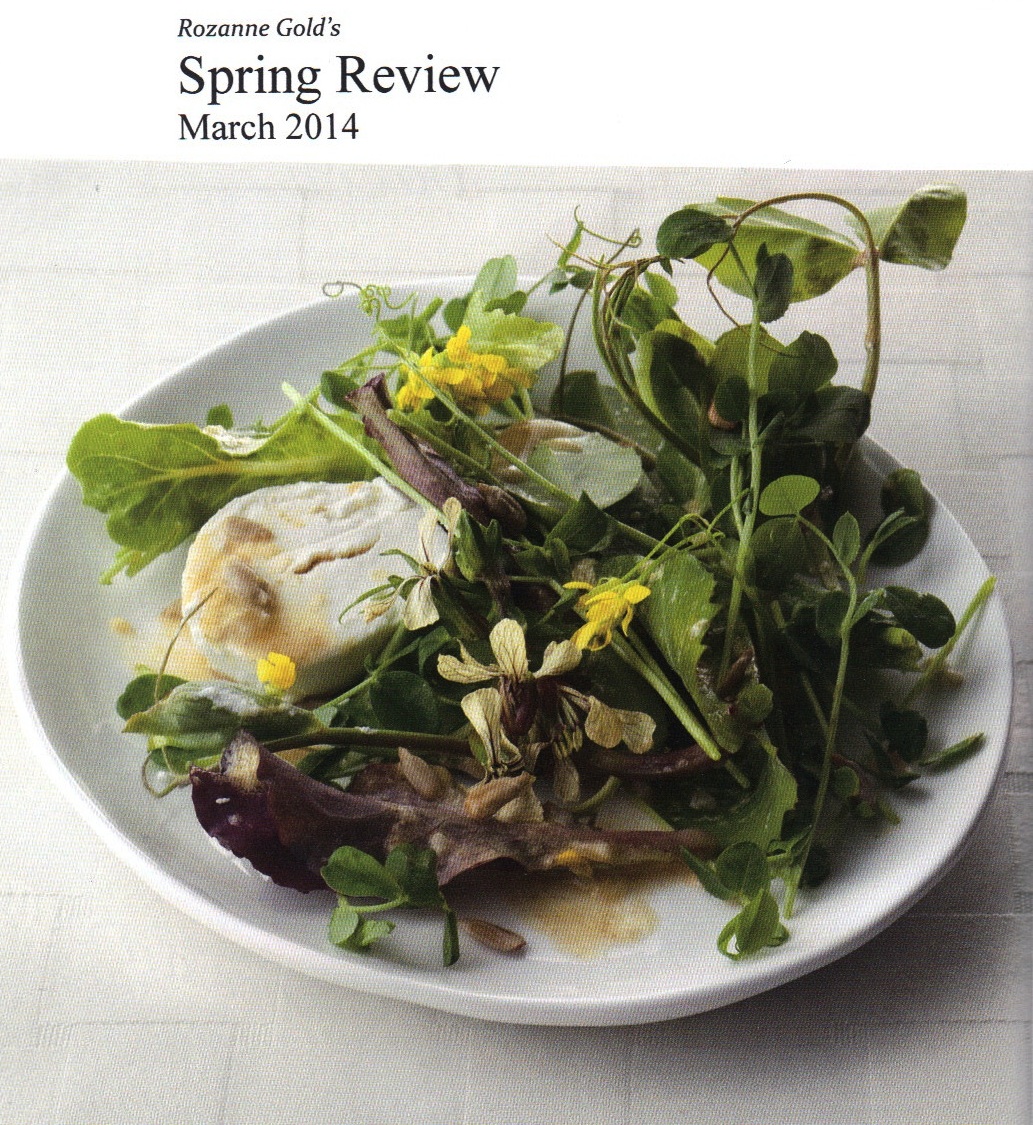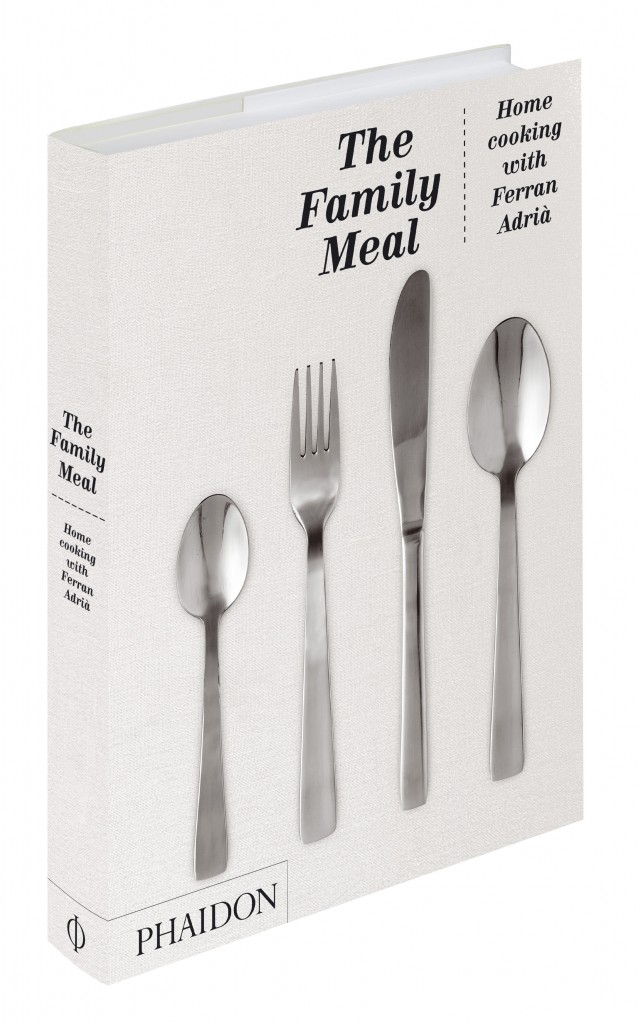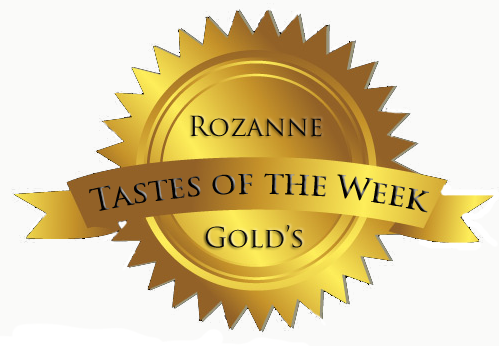 It’s time for a Spring Review since beginning my blog in 2010. I’ve written more than 300 entries and wanted to share the best with you. Because of instantaneous access to one another via the Internet, the “world’s table” is now on public view. It is my goal, then, as a journalist, chef, author, restaurant consultant and food trends junkie, to help set the table with decades of perspective. When Vladimir Nabokov got around to writing his memoir, he called it “Speak, Memory.” When writing my blog, I issue a similar command to myself: “Taste, Memory!” I seek ways to connect the reader emotionally to his or her own gastronomic wavelength.
Just as Anna Quindlen writes about her keen observations about life – tying together politics, family, and one’s inner experience, often with whimsy -- I have written my voice into daily, and weekly, connections to food, dining, cooking, history, biography and memoir. Each entry is a deliberate serving of the past, present and future – whether connecting the uprising in Egypt to my respect for Naguib Mafouz and my fondness for Egyptian cooking (with a contemporary photo of a young man preparing an ancient dish of ful mudammas); or experiencing the soul of Philadelphia-chef Marc Vetri through his singular approach to food and cooking and told his story by deeming him a “culinary bodhisattva.” A posting about “white carrots” informs the misinformed (which at times can be most of us), with an observation backed up with a bit of history, some speculation, and a few recipes to make the point. Included is a mesmerizing photo of carrots.
It’s time for a Spring Review since beginning my blog in 2010. I’ve written more than 300 entries and wanted to share the best with you. Because of instantaneous access to one another via the Internet, the “world’s table” is now on public view. It is my goal, then, as a journalist, chef, author, restaurant consultant and food trends junkie, to help set the table with decades of perspective. When Vladimir Nabokov got around to writing his memoir, he called it “Speak, Memory.” When writing my blog, I issue a similar command to myself: “Taste, Memory!” I seek ways to connect the reader emotionally to his or her own gastronomic wavelength.
Just as Anna Quindlen writes about her keen observations about life – tying together politics, family, and one’s inner experience, often with whimsy -- I have written my voice into daily, and weekly, connections to food, dining, cooking, history, biography and memoir. Each entry is a deliberate serving of the past, present and future – whether connecting the uprising in Egypt to my respect for Naguib Mafouz and my fondness for Egyptian cooking (with a contemporary photo of a young man preparing an ancient dish of ful mudammas); or experiencing the soul of Philadelphia-chef Marc Vetri through his singular approach to food and cooking and told his story by deeming him a “culinary bodhisattva.” A posting about “white carrots” informs the misinformed (which at times can be most of us), with an observation backed up with a bit of history, some speculation, and a few recipes to make the point. Included is a mesmerizing photo of carrots.
I believe that a younger generation of “food passionistas” – a term I coined for the group of dedicated, enthusiastic, and obsessively curious types about the world of food, chefs, and cooking – are in need of less hype, and more information, in an accessible way. Inspired by the daily experiences of life in my kitchen, life in other people’s kitchens, learning at the hands of some of the industry’s most influential tastemakers, the purpose of my blog is not to attract advertisers or lure masses of readers; rather, it is an intimate, highly personal, often funny view of the world of food. Every blog posting puts my readers in-the-know about something timely. As a bonus, there’s always a “goody bag” in which one finds original recipes, ways to use new ingredients, food and wine pairing ideas, tips for entertaining, news about the coolest chefs and hottest restaurants. Or something more personal – a taste experience (ever try bitter chocolate, Parmigiano-Reggiano and sweet red grapes?); a mind stimulant (what about making marmalade from carrots?), or a new technique (like my deconstructed “wined-and-brined turkey,” or making cream cheese via “drip irrigation”).
Cooking is not merely about measurement and temperature, and the culinary world is not merely about gastronomy or nutrition. Food has deep historic and emotional resonances, and profound historical connections -- think about “feast” or “famine” or “bread riots.”
Food is familial and simultaneously social: We break bread together and then divide the world into pig-eaters or pig-shunners.
When one writes well about food, all these factors come into play, consciously or not. One should know that The Gleaners in Millet’s famous painting reach backward historically to biblical injunctions not to harvest to the corners of the field, but to leave food for the poor. One should know that without the discovery of the Americas, there would be no tomatoes in Naples, no paprika in Budapest, no chocolate in Zurich. One should know something about why certain foods connect to certain religious festivals – why, for example, we serve lamb at Easter and also at Passover, and why both “feasts” relate to activities around the table.
What my mother cooked for the her family is different from what my readers’ mothers did then or do today, but they all set standards for how we view not just what’s on our plate, but how we will relate to a larger world – one in which even the present seems to vaporize in an instant.
Please take a moment to enjoy the posts below, and I encourage you to search the archives for others that may be of interest to you.


